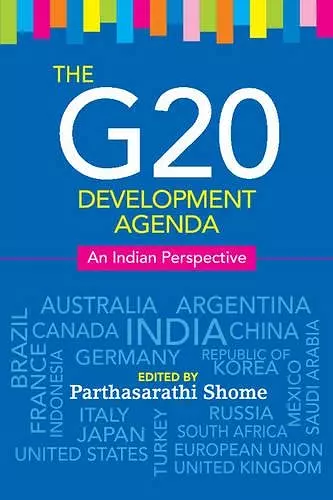The G20 Development Agenda
An Indian Perspective
Format:Hardback
Publisher:Cambridge University Press
Published:14th Mar '16
Currently unavailable, our supplier has not provided us a restock date

This book focuses on major development themes in the G20's agenda in the provision of global public goods.
This book, divided into three sections, focuses on major development themes in the G20's agenda, in the provision of global public goods including recycling global savings for development and financing investment in global food and energy security, green growth and environmental sustainability.Since its initiation of the financial sector reforms through a newly established global cooperation process in the post-2008 financial and economic crises, the G20 expanded its agenda to include development pillars as the global economy began to recover in 2010. It actively extended its attention to the recycling of surplus country savings for investment in infrastructure in deficit countries, to the achievement of global food and energy security, to addressing the growing financialisation of commodities and its impact on price volatility, and to the costs and benefits as well as the intent and impact of continuing energy subsidies. It began to focus on recent global initiatives on climate change and adaptation financing with global equity and economic efficiency in mind. This volume addresses such issues in the G20's development agenda and assesses their relative successes and failures, with a particular focus on how the issues are of relevance to India.
'This edited book provides a detailed description of India's perspective of the G20 development agenda. Laying out the purpose and evolution of the agenda in the context of the 2008–9 global financial crisis … the book urges the extension of the G20 agenda in the post-2010 period to more efficiently address concerns of developing members … such as India. In this vein, chapters of the book offer 'India's perspectives' on issues of the G20 development agenda … that are significant to India. The chapters address these issues well, discuss the successes and failures of the G20 agenda to address these issues in a more global manner, and argue for expanding the G20 development agenda to include the perspectives of developing countries and make the G20 a 'gateway' to gain credibility in the global governance area. The book, with its issue-specific information and supporting tables and figures, represents an impressive 'Indian perspective' in assessing the G20 agenda.' R. Das, Choice
ISBN: 9781107091528
Dimensions: 236mm x 158mm x 25mm
Weight: 610g
322 pages